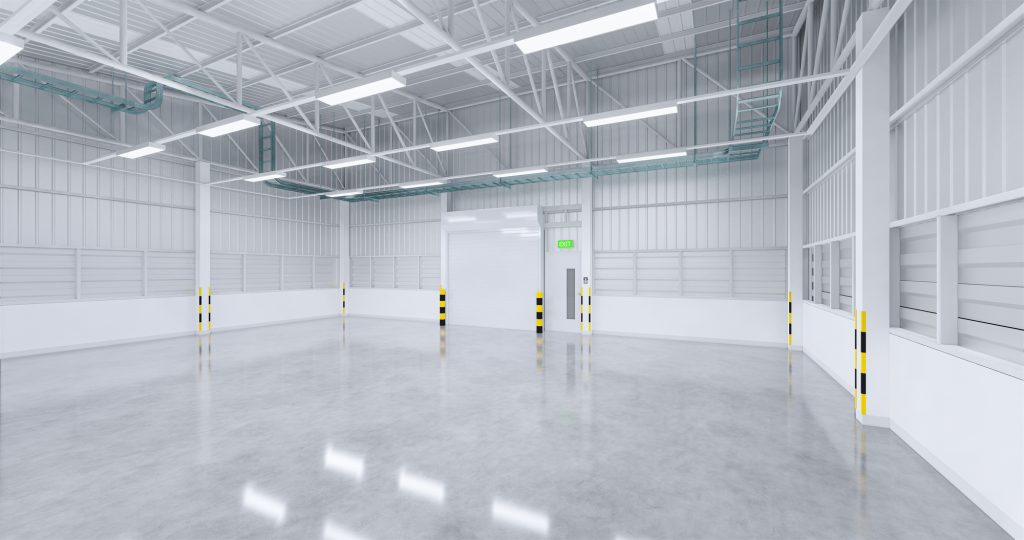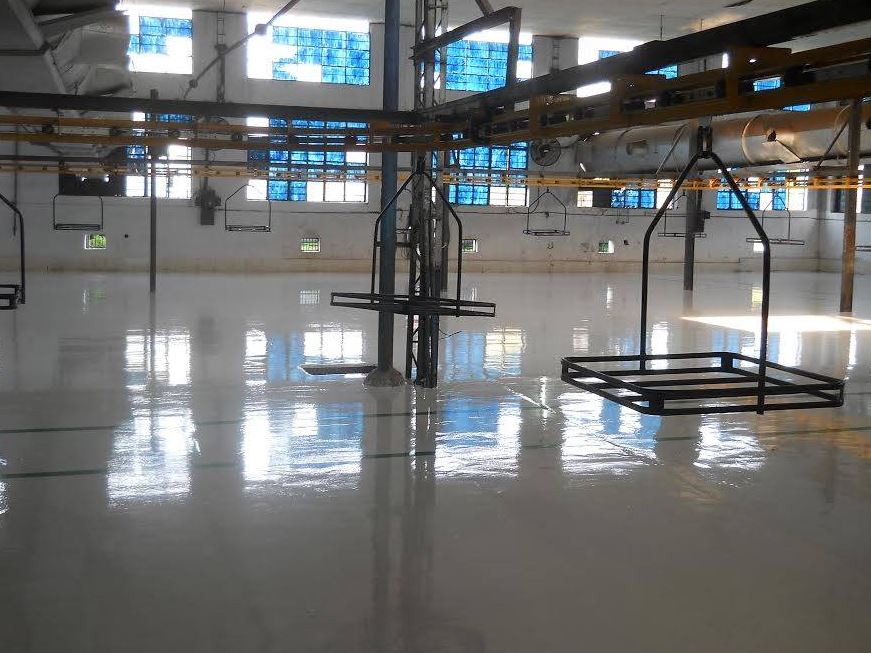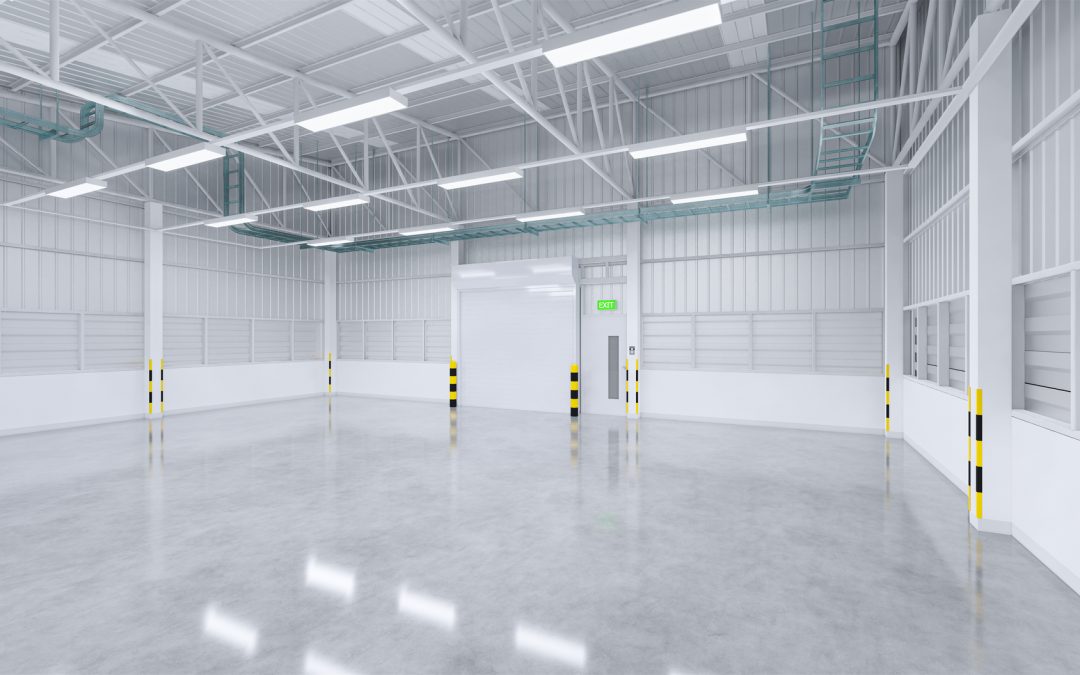Everything You Need to Know About Installing Industrial Epoxy Flooring
Installing an industrial epoxy floor can give your business a big boost in terms of appearance, durability, and maintenance. This resilient type of surfacing is perfect for areas that require high levels of protection from heavy traffic, abrasion, chemicals, or temperature extremes. Industrial epoxy flooring provide superior traction and are easy to clean due to their non-porous surface. Commercial buildings such as restaurants, factories, garages and retail spaces all benefit from the application of this type of aggregate flooring material. In this blog post we’ll look at what you need to know about installing industrial epoxy floors so you can make a well-informed decision regarding your next floor installation project.
Benefits of Industrial Epoxy Flooring

Industrial Epoxy Flooring
Industrial epoxy flooring is an increasingly popular choice for businesses, warehouses, and other commercial facilities. These floors offer several advantages over traditional methods such as concrete or tile options. Epoxy flooring provides increased durability and stronger resistance to abrasion, staining, and chemicals. Additionally, the installation process is often faster than alternative options, making it ideal for time-sensitive locations. An epoxy coating can also improve safety in a facility by decreasing slipping and sliding risk and providing a non-porous surface for easy cleanup. Furthermore, this type of flooring does not require frequent maintenance or repairs, saving time and money in the long run.
Tips for Choosing the Right Installation Professional
If you are planning to have industrial epoxy flooring installed, it is important to properly research the type of installation professional you are hiring. It is essential to ensure they have the necessary experience, certifications and proven track record in installing such floors successfully. Ask for examples of their previous work as well as references from other customers. It’s also crucial to make sure they carry insurance in case of any accidents or issues while they are on the job site. Taking the time to vet your chosen contractor can save a lot of hassle and money in the long run by ensuring quality craftsmanship, efficiency and reliability when installing your industrial epoxy floor.
Step-by-Step Guide to Installing Industrial Epoxy Flooring
Installing industrial epoxy flooring can provide the durable, aesthetically pleasing finish that businesses desire for high-traffic areas. To ensure the highest level of craftsmanship and quality results, it’s important to follow a step-by-step guide to install this type of flooring. Before beginning, preparing the area is key to ensuring that you have a smooth substrate and any old coatings and painting are removed. Next, applying the primers and fillers helps with adhesion and leveling of the surface before installing new flooring. Additionally, using specialty top coats may be desired based on your needs. Lastly, curing includes allowing ample time for the base coats to slightly dry before adding any part B component as well as proper timing for hardening of the entire system. By following these steps correctly, industrial epoxy flooring can be installed correctly and finished successfully.
Common Mistakes to Avoid When Installing Industrial Epoxy Flooring
Installing industrial epoxy flooring is a challenging job that can be easy to get wrong. Common mistakes encountered in the installation of this type of flooring include inadequate surface preparation, improper mixing ratios when combining materials, and incorrect application techniques. Poorly prepared surfaces will not only result in weak adhesion between the epoxy and subfloor, but also an increased likelihood of further damage from moisture penetration or chemical spills. Failure to mix components together at the required ratio can weaken the epoxy’s overall durability and performance. Lastly, applying epoxy too thin or with too much air pressure from a sprayer reduces its protection properties against wear and tear as well as making it susceptible to tracking or vehicle wheel spinning. Therefore, taking extra time to get every step right is worth it for a long-lasting floor coating solution.

Commercial Epoxy Flooring
Maintenance and Care Tips for Your Industrial Epoxy Floor
Maintaining and caring for your industrial epoxy floor can help ensure that it stays looking its best, even in the busiest of environments. Start by thoroughly sweeping or vacuuming the surface to remove any dirt and debris that has accumulated over time. Use soft cloths, sponges, or mops to clean the surface with a non-abrasive cleaner. To avoid scratching the surface, never use abrasive scouring products or materials on your industrial epoxy floor. If stains should occur, apply a chemical cleaner designed for industrial epoxy floors and blot using a damp cloth; never scrub in circles. Lastly, to keep your industrial epoxy floor in top shape and looking shiny and new, wax periodically using an appropriate floor wax designed for this specific type of material. Following these simple tips will help maintain the quality of your industrial epoxy floor while helping to keep it looking great.

